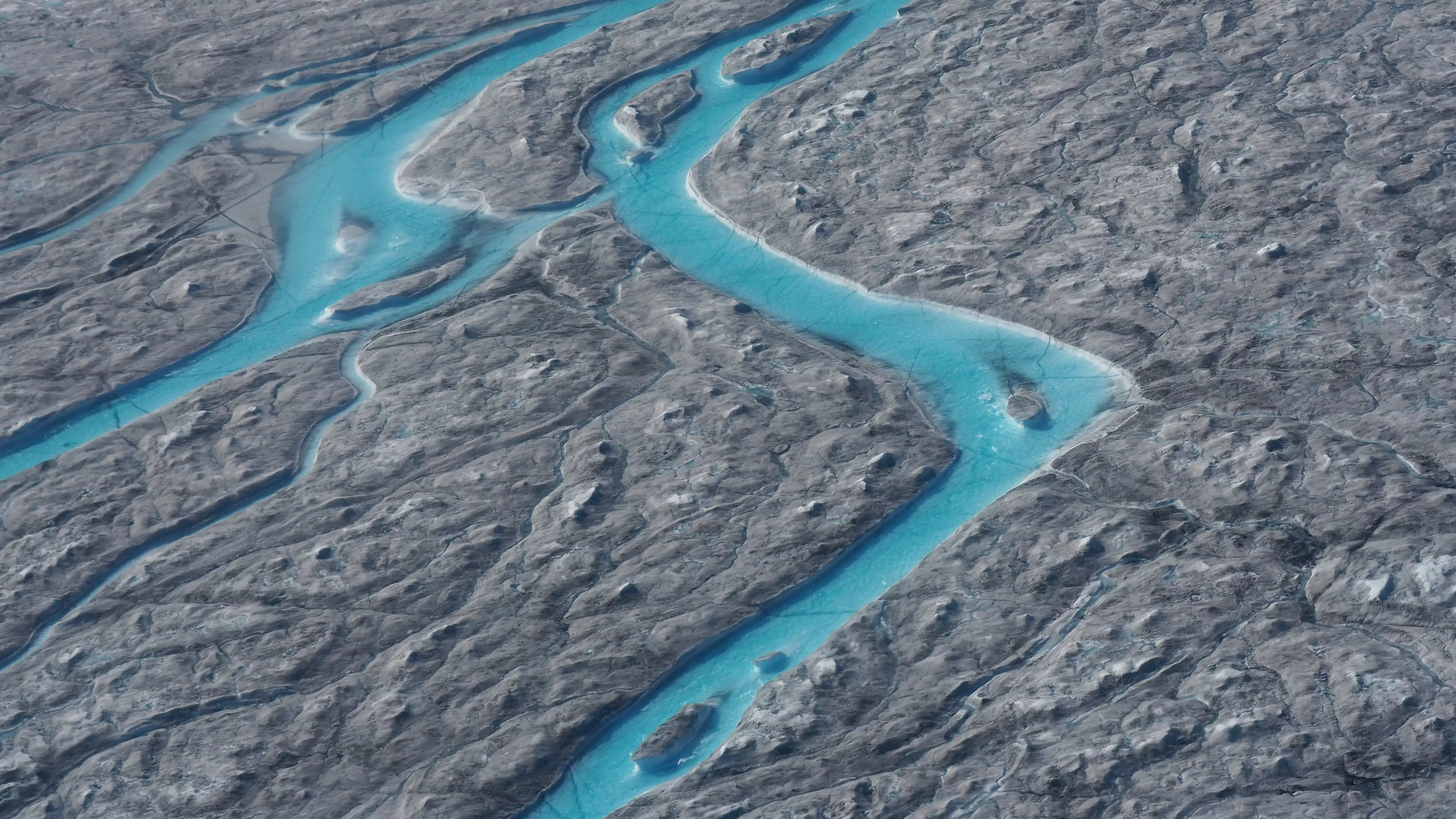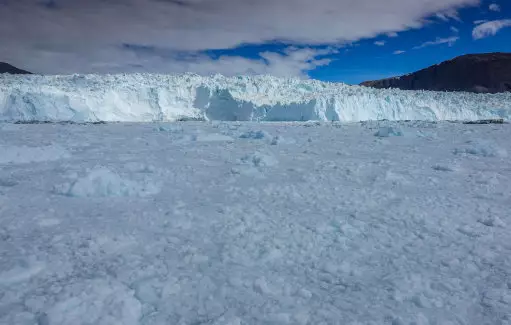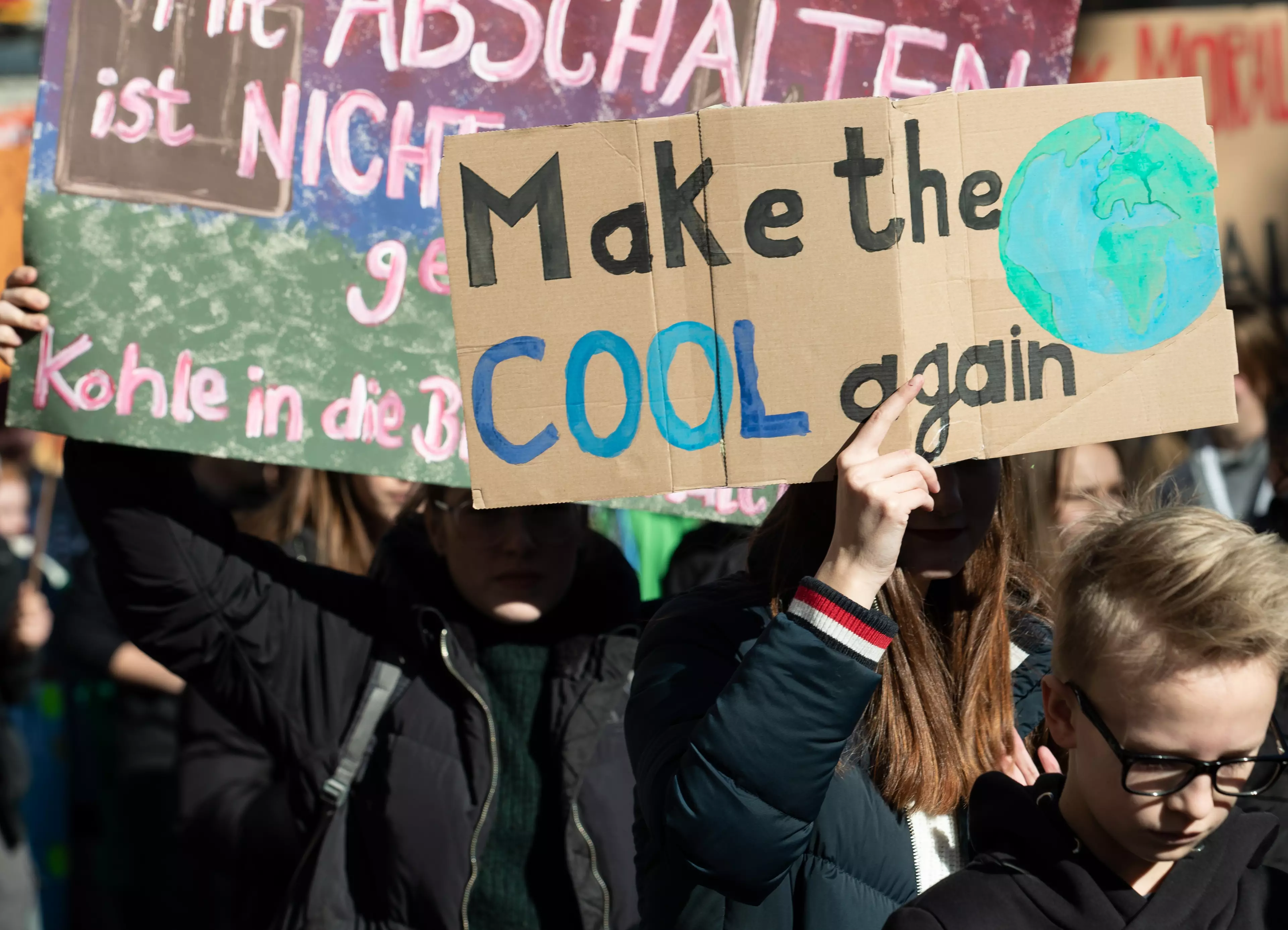
Climate change deniers can deny all they want - the facts are there. Temperatures have been steadily rising over the years thanks to human activity, from carbon emissions due to factory farming and industrial production to wide-scale deforestation and the subsequent diminishment of wildlife.
The shocking impact of this is evident in droughts, heatwaves, floods and stronger hurricanes across the globe. Another terrifying result of climate change is the melting of our world's ice caps.
Just take a look at what's been going down in Greenland. Following months of record high temperatures across the globe, scientists report that the country's ice sheet went through its biggest ever melt on Thursday (1 August), losing 11 billion tonnes of ice in just one day.
Advert
To put that in perspective, that's the equivalent of 4.4 million Olympic swimming pools.
The incident has made such an impact that sea levels have risen 0.5mm in the period of just one month.
The sea level, like temperatures, has been rising steadily in recent years, posing devastating consequences for countries worldwide who have had to deal with natural disasters like tsunamis and flooding.

Speaking about the abnormally high temperatures in Greenland that have contributed to the ice sheet melting, Dr Andrew Sole, a glaciologist from the University of Sheffield, told The Independent: "This year Greenland and other parts of the Arctic have experienced some record-breaking temperatures.
Advert
"In mid-June, temperatures along the eastern coast of Greenland were up to 9C above the 1981-to-2010 average.
"In early July I was on an expedition to northeast Greenland in Kronprins Christian Land at 80 degrees north, and we measured a temperature of 17C in the shade.
"In addition, Alert, a military base and meteorological station at the northern tip of Ellesmere Island in the Canadian Arctic at 82 degrees north, experienced a temperature of 21C in mid-July."
It is reported that communities on the Greenland coast are likely preparing for floods as a result of the melt, which is believed to be the second largest event of its kind since records began in the 1950s.

But before you start stocking up your doomsday bunker, other experts have warned that things might balance out following a potential bout of cold weather.
Advert
Professor Jeffrey Kargel of Arizona's Planetary Science Institute explained: "We need to wait for scientists to go about producing, vetting and releasing scientific results before we can say that any significant changes have occurred to the melting rate due to this heatwave."
Still, there's no denying that climate change is a critical issue, one that world leaders need to take more seriously if we're to save the planet for generations to come.
Featured Image Credit: PATopics: World News